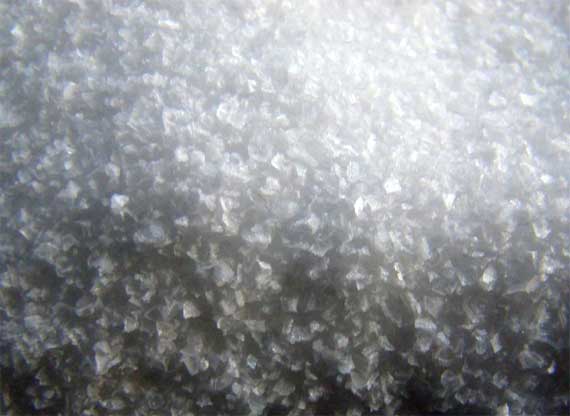
Am now reading Kurlansky’s The Story of Salt (2006), which I saw recommended somewhere. I thought it strange when I put the hold on it at the library last week that it was in the Juvenile collection, but I plowed ahead, Explorer that I am. Picked it up today and found out what I could have discovered with a quick google—it’s aimed at the Grade 3–6 set. Still, it’s interesting, although Kurlansky too strongly makes the argument that pre-modern history is based on the salt trade. On the other hand, salt is so cheap and plentiful today that maybe I cannot imagine what it was like “in the old days.”
31 January 2009 at 9:46 am
Pooh says:
The word “salary” comes from the Latin and means “payment in salt”, or something close to that. There are also the expressions, “he’s worth his salt” and “salt of the earth”. One more tidbit. Detroit is both the Motor City and a big salt supplier. Having driven the old Ford “Pucci Rustoli”, one might suspect that one industry feeds (or eats) the other.
1 February 2009 at 8:46 pm
Jay says:
We have the book too, on CD. It was given to Rey at some point, but he does not have a CD player in his car, and is not given to listening to books on CD at home. So it stayed here. I was planning to add it to my commute for a few weeks .
2 February 2009 at 6:26 pm
Maureen Meyers says:
Kurlansky’s “Salt” (I think) is the adult version, but also heavily influenced/dependent on the salt trade as an explanation for increasing cultural complexity. Still, it’s the most detailed examination of salt cross-culturally & historically (aside from a paper I wrote for class, of course :). See also Heather McKillop’s “White Gold” about salt trade along the coast among the ancient Maya.
I always say, it always goes back to salt. It’s the salt of the earth, and it’s worth it’s weight in salt. Ok, I’ll stop now.
7 February 2009 at 1:10 pm
Sammy says:
I do try to get the backstory, but sometimes, poof, I miss it! Thanks, MM (who does not have a salty tongue—couldn’t resist adding my own…).